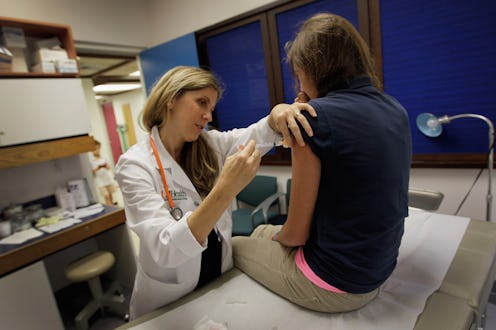News
CDC Calls For More Teens To Get HPV Vaccine
According to new information released from the Centers for Disease Control and Prevention (CDC), access to the vaccine for human papillomavirus (HPV) did not increase at all in 2012.
Dissemination of the HPV vaccine has increased every year from 2007 to 2011 — halting in 2012. According to the data, 53 percent of girls received one or more dosage of the HPV vaccine in 2012. However, only 33 percent had completed all three dosages.
Dr. Thomas R. Frieden, head of the Centers for Disease Control and Prevention, told reporters that coverage typically increases by 10 percent each year. But in 2012, coverage “has not increased at all from one year to the next. Zero," Frieden said.
"For every year that increases in coverage are delayed, another 4,400 women will go on to develop cervical cancer," the CDC's report said.
In their report, the CDC highlighted three recommendations to improve HPV vaccination: education of parents, healthcare providers recommending the vaccine, and reducing missed vaccination opportunities.
“The doctor is the single most influential factor that determines whether kids get vaccinated,” Frieden said.
According to the CDC, most sexually active adults will get HPV during their lifetime. Although 90 percent of these cases usually clear up on their own, the HPV vaccine is recommended for both boys and girls, usually starting at 11 or 12 years of age. 14 million people are newly infected with HPV each year.
